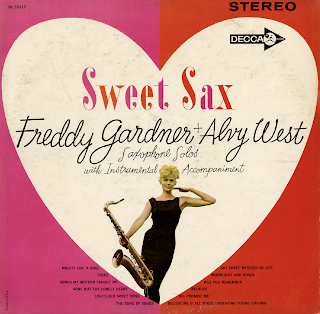Jungle Pipe
Buddy Collette
Man Of Many Parts
Cover Photos and Design: William Claxton
Produced by Lester Koening
Recorded at Contemporary's studio in Los Angeles
Engineer and Technical Supervisor: Roy DuNann
Contemporary C3522
1956
Cycle, Santa Monica, Ruby & Slappy's Tune were recorded February 13, 1956 with Buddy Collette, alto and tenor saxes, clarinet and flute; Gerald Wilson, trumpet; David Wells, bass trumpet and trombone; William E. Green, alto sax; Jewell Grant, baritone sax; Ernie Freeman, piano; Red Callender, bass and Max Albright, drums.
Frenesi, Jazz City Blues, Makin' Whoopee and Sunset Drive were recorded February 24, 1956 with Collette and Gerald Wiggins, piano; Gene Wright, bass and Bill Richmond, drums.
Zan, Cheryl Ann, St. Andrews Place Blues and Jungle Pipe were recorded April 17, 1956 with Collette and Barney Kessel, guitar; Ernie Freeman, piano; Joe Comfort, bass and Larry Bunker, drums.
From the back cover:
He (Collette) was born in Los Angeles August 6, 1921, and attended Jordan High School. The climate at Jordan must be conductive to the growth of self-expression and individuality in music and also its related enterprises. Buddy's classmates include bassists Charlie Mingus and Joe Comfort, Ellington trombonist Britt Woodman, and in the disc-jockey field a coupe of guy named Joe: Joe Adams in Los Angeles and Joe Perry in San Francisco.
In the triple-threat department of composing-arranging-orchestraion, Buddy's writing has clarity, sonority and above all, he writes with what symphonic composers call economy of means. In plain language, he puts into his scores only what is necessary to the presentation of his ideas, and consequently is never guilty of over-arranging.
Buddy can be heard with Jack Meakin on the Groucho Marx radio and TV show, and on various recordings with Benny Carter, Jerry Fielding, Red Norvo, and presently with the Chico Hamilton Quintet. And – oh, yes – I almost forgot. He can also be heard on all Lyle Murphy albums – past, present and future. As I stated at the outset, Buddy Collette is a good man to have around. – Lyle Murphy - June 1, 1956
From Billboard - August 8, 1956:
Collette, talent multi-instrument member of the Chico Hamilton Quintet, demonstrates his versatility by performing numbers on alto and tenor saxes, flute and clarinet (on which he was voted New Star this year). As usual with this type of act, nothing memorable is produced, altho he plays every instrument with tone and taste. The pretty tenor work on Collette's own "Cheryl Ann" is especially spinworthy. Jazz jocks will like that one. Sales should be just moderate.
Cycle
Makin' Whoopee
Ruby
St. Andrews Place Blues
Cheryl Ann
Sunset Drive
Jazz City Blues
Slappy's Tune
Frenesi
Santa Monica
Jungle Pipe
Zan






















